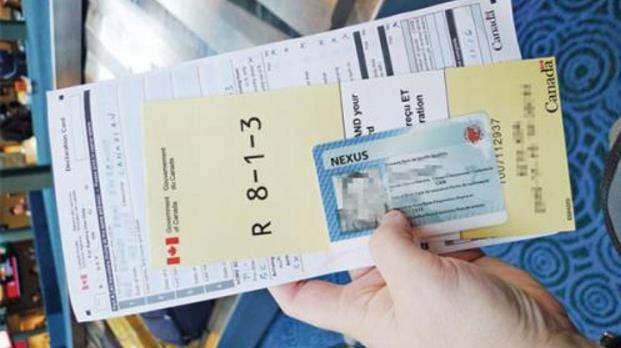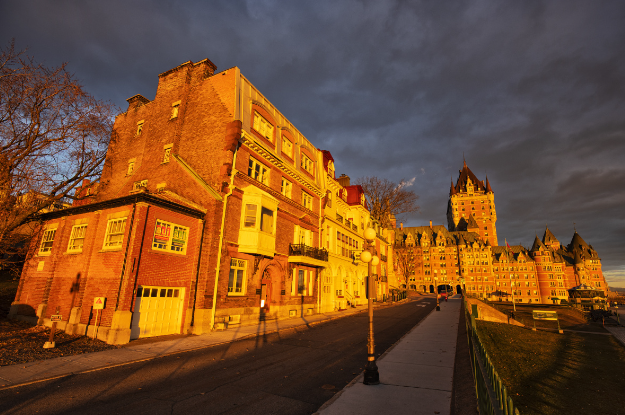The Advantages Of Canadian Maple Leaf Card Are Fully Demonstrated, Including Social Welfare And Work Signing Policies, Etc.
The Advantages Of Canadian Maple Leaf Card Are Fully Demonstrated, Including Social Welfare And Work Signing Policies, Etc.
Page Canada Maple Leaf Card Picture Canadian Maple Leaf Card Advantages Governor's Office Exclusive Welfare Milk Money You don't have to worry about not being able to support the twelve zodiac signs. Social welfare pays for your quality of life. The word "medical insurance" is free unemployment insurance. It's really a pie to fall from the sky.
Page 1 Canadian Maple Leaf Card Pictures Advantages of Canadian Maple Leaf Card
Governor's House - Exclusive Welfare for the Poor
Milk gold - you don’t have to worry about not being able to support the twelve zodiac signs.
Social Welfare - Pay for your quality of life.
Medical Insurance - Two words "free"
Unemployment Insurance – Pie really falls from the sky.
In terms of educational welfare, primary and secondary education implements a free system, while at the university stage, the tuition fee level is relatively low, only one-quarter to one-fifth of the tuition fee of foreign students.
1. Work Signing Policy
Li emphasized that students with college degree or above are eligible to apply for graduation work permit after completing their studies. After obtaining this permit, they were able to continue their work in Canada. Usually, the validity period of the graduation work permit is determined based on the applicant's study period. If the study time is less than two years, the permit period is usually consistent with the school system; for two years and more, there is an opportunity to obtain a work permit of up to three years.
Although immigration policies vary in each province, they are similar. Taking two representative provinces as examples, such as Manitoba, its overseas student policy has attracted much attention. The province stipulates that international students must obtain a full-time job invitation that matches their major after graduation before applying for immigration qualifications for international students, and the invitation period must exceed one year. Similarly, Quebec, another popular province, also has its special requirements: Quebec international students must pass the French B2 level test within three years after graduation before applying.
2. Free education for children
Students with a Canadian study abroad visa can apply for free public education at the local public education bureau if their children attend full-time courses at Canadian universities or colleges. The children's free study time matches the validity period of the student visa of international students.
3. Partner work visa
Married students who hold study abroad visas in Canada and study full-time at universities or colleges in the country are entitled to apply for a work permit that is consistent with the validity period of the study abroad visa. His spouse can use this job opportunity to apply for skilled immigration at the same time. In addition, individuals are also eligible to submit immigration applications independently.
Studying in Canada is undoubtedly a reliable option, however, if you clearly state your goal is to immigrate during the application process, you are likely to be rejected. What's going on? The Canadian government has welcomed international students and is willing to let them stay to immigrate. But when I made a wish to immigrate, you rejected my request. Why is this?
In fact, there are some issues that we need to clarify. The government’s attitude towards studying in Canada is warmly welcomed, which not only brings economic benefits to the country, but also is also an option that conforms to national policies for individuals who want to immigrate to Canada.
However, if someone questioned that my true intention of studying in Canada was to immigrate, I would definitely deny it; because the basis for the Canadian government to refuse visas is quite common, no matter the purpose of your visit, it naturally includes travel, visiting relatives, medical treatment, short-term study, and even studying abroad.
Some people may have been confused before, why did Canada extend an invitation to study abroad and provide me with a way to continue studying after immigrating, but still refuse?
The answer here involves two different groups trying to do certain activities. Before you apply for immigration, you have questions about your immigration intentions, whether to apply for study abroad or plan to travel to Canada, and you are likely to be rejected.
This involves a problem of operating specifications. Since different people perform tasks, whether they are study abroad visa officers, visiting visa officers or immigration visa officers, their responsibilities are essentially the same, so we must operate according to their guidelines.
Preferential policies for studying abroad immigration in Canada
Canada has the world's most sound education system and excellent learning environment, attracting a large number of students every year. Among many provinces, Ontario, Oman, Alberta and BC are particularly popular among Chinese students, and their study abroad immigration policies are relatively relaxed. Students can study abroad first, then work, and finally immigrate, achieving the dual goals of personal study and family immigration. The entire immigration process takes about 2 to 3 years, which is relatively cost-effective and fast in Canadian immigration programs.
Who is suitable to study in Canada?
The Canadian immigration department has different visa approval standards for foreign students of different age groups. Generally, young people under the age of 30 are considered the preferred age group in Canada, while applicants over the age of 30 face higher chances of visa rejection. As we get older, the possibility of refusing visas also increases. However, if you can carefully plan a study abroad program that convinces visa officials, it can effectively reduce the risk of visa refusal by Canadian Immigration.
Age groups under 18-25
Most of these applicants are fresh graduates from high school or university and lack practical work experience. They are in the process of further study, so their desire to choose to study abroad is very clear.
Age group of 25-30
Applicants of this age group have generally graduated from school and have certain work experience, but their financial conditions are not enough to achieve self-protection. Their main purpose is to go to Canada to study and pursue higher-level degrees such as master's degree. Therefore, the chance of applying for Canadian study abroad immigration is relatively small.
Job seekers in their thirties should have entered the marriage hall. This move will help deepen the emotional bond with the motherland and ensure that they can return home smoothly after they have completed their studies. In addition, applicants need to maintain academic continuity, and their past learning experiences should be consistent with their personal major or existing career nature. The purpose of further study in Canada is to further improve its existing professional capabilities to demonstrate its real motivation for studying abroad.
Age group over 30 years old
There are many young people aged 30 to 35 who apply to study in Canada, so it is not uncommon to be rejected. However, for people in their forties, the proportion of visa rejection for applying for studying in Canada is quite high. This is because the Canadian Immigration Agency believes that people of this age have very clear motivations to study in Canada, and they often regard studying abroad as a transitional path for immigration. In view of this, the Canadian Immigration Agency has particularly strict reviews of such applicants.
In fact, the Canadian immigration department's regulations are quite direct, aiming to attract experts with high-tech backgrounds and higher education qualifications, or those with rich income and wealthy assets, to promote Canada's continued progress in the economic and educational fields.
How many years can I get a work visa?
College graduates
College education in Canada is usually a two-year or three-year school system. After completing the school, international students can obtain a three-year work permit.
graduate
In Canada, most undergraduate programs last four years, but some students can graduate smoothly in about three years. Additionally, certain specific majors may take longer to study. Upon completion of studies, international students will be eligible for a three-year work visa.
Master's degree graduate
Master's programs in Canada are generally two-year. If students complete their studies in advance, they will obtain an employment visa for the corresponding time - one or one and a half years of graduation; if they complete two-year courses on schedule, they can apply for a three-year employment visa. It should be noted that the course duration includes the preparatory courses of our school, but do not include the preparatory courses with partner universities.
Graduates with corresponding education can be eligible for immigration application if they hold a work visa while working in Canada and receive their employer's guarantee. No matter what level of education you have in your country, you have the right to go to Canada for further studies. As long as you complete a college degree or above locally, everyone will have the possibility of immigrating to Canada, and then enjoy the treatment of a permanent resident in Canada, or apply for benefits equal to Canadian citizens in the future.





